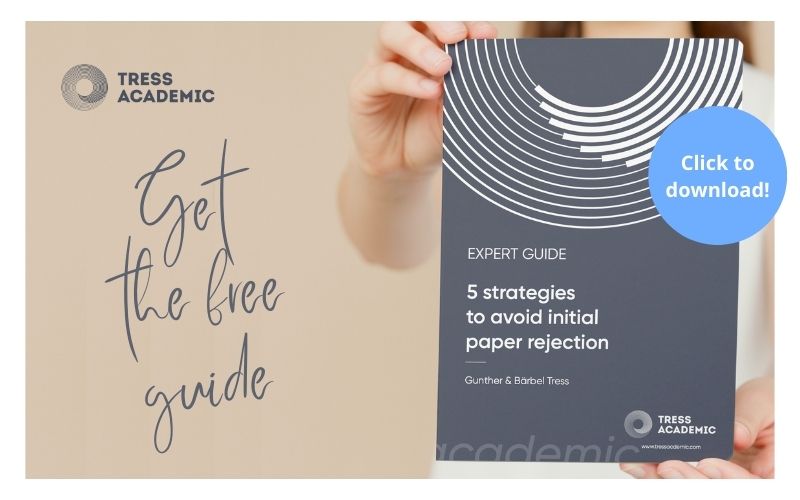When working with co-authors on a joint paper, the order of authors as listed on the paper needs to be set. Naturally, several authors might want to claim the prestigious first position as theirs. If you feel that it should be you who is recognized as the prime author, and if you have a solid reason to claim so, we will instruct you below on how to convince your co-authors to allow you that coveted spot.

Do you find yourself in a situation where you’re working for weeks or months on a paper for a project together with some colleagues, PhD students, Postdocs or supervisors? Although the paper is directly linked to your project, and you’ve done most of the work for it, so far it has not been discussed who will be the first author on the paper.
From your perspective, it is obvious that you should be the first author, but deep inside you fear that some of your co-authors, some of them senior authors, will determine it is NOT you. Isn’t this a pretty uncomfortable situation? It makes you feel very bad.
In this post, we’d like to encourage you to stand up and claim your first authorship if you feel you deserve it. We offer suggestions on how you can communicate your claim to (senior) co-authors. On top of that, you can download a free sample message “Claim your first authorship” that you can adjust to your situation and send to your co-authors.
1. Why does it matter who is the first author?
In many academic fields, first or prime authorship of a paper indicates that this person has provided the majority of the work or the biggest intellectual contribution to the research. It is quite a prestigious position, as the work will be primarily attributed to the first author. First-author papers are valued highly in job applications, staff appraisals, or any form of career development exercise. Another benefit is that the name of the first author gets promoted and remembered more than the others because depending on referencing systems and styles, multi-author papers are often referred to as “First author’s last name” followed by “et al.” and the year (e.g. “Miller et al. 2021”). Only on the paper’s title page or on the list of references does the complete list of author names appear. So, it is not a question of manners to let somebody be the first author–it has real meaning and consequences.
2. When to tell your co-authors?
Ideally, this step was taken in the planning phase of the paper or near the start. If not, then tell your co-authors as early as possible about your intention to claim first authorship. The earlier they know their status on the paper and the earlier you know yours, the earlier you can act in the appropriate way. As a first author, you should take on more of the work and facilitate the cooperative writing process; if you’re a co-author, you simply contribute.

3. Who should be the first author – who not?
Deciding who is the first author on a paper has nothing to do with rolling the dice, or who has the most power to decide. In academia, authorship credits follow set rules that are suggested by several bodies and organisations dealing with publication ethics and authorship such as the Committee on Publication Ethics, the Council of Science Editors, the International Committee of Medical Journal Editors, the European Association of Science Editors, and others. Also, all major journal publishers provide ethical guidelines for authorship, often referring to the ethical bodies listed above.
Criteria for first authorship may vary across disciplines (see Dance 2012), but for most fields, the following criteria suggest you being the first author on a journal paper if:
- you designed the research work
- you contributed most to the work
- you wrote large parts of the paper
If these criteria apply to you, from an ethical standpoint, everything indicates that the first author on the paper should be you. First authorship is not a question of hierarchical position, prominence, or expertise of the author. Sometimes it might be difficult to determine who did most, but you’ve got the option to share first authorship with a co-author.
4. Why should you claim first authorship?
We know exactly how you feel now: You read all of the above and in principle, you have confirmed that yes, you did most of the work on the paper, so it should definitely be you who becomes the first author. BUT: You’re afraid of claiming it! You think it is unreasonable, not good behaviour, or not common practice in your field, institute, or community to do so.
It might feel like that, or it might make you uncomfortable to step-up and discuss the authorship issue. But what happens if you do not initiate it now? Will it feel better? Do you want to make sure that the effort that you put into your work and the paper gets rewarded appropriately?
When you feel confident about having done the majority of the work researching and writing the paper, when you feel this is YOUR work and YOUR paper, then you should claim first authorship. This is probably less of a problem for your co-authors than you think. They saw that you’ve done most of the work. They probably do not question your position and often, some are glad to get rid of the additional burden that comes with being the first author (i.e. having to do all the administration of the paper, the correspondence with the journal, taking care of every co-author, taking care of the review and revision process, and so on).
Particularly, if you’re an early-career researcher with less experience in the academic and publishing business, it can be a sign of maturity to step forward and claim the lead. You show your colleagues that the work is important to you, and that you’re proud of it. Becoming the first author on the paper also means earning the respect of your peers.

5. How to claim first authorship?
So it’s no longer a question whether you should step forward and claim first authorship. Now the question is how to do it? We suggest four steps in your communication with your co-authors:
- Tell your co-authors how you feel about not having discussed the authorship issues yet.
- Tell them why you think you should be the first author on the paper. Stress here the importance of the work presented in your paper to your research.
- Tell them you see the paper as a milestone in your personal and academic development, and that you’re grateful to have your co-authors supporting you in this development. Also, state how valuable it is for you to have the chance to develop the paper together with them and get their feedback.
- Tell them that you’re aware of the responsibilities that come along with being the first author, but that you’re happy to take them on. Ensure them that you will work hard to get this paper written, submitted, and published as soon as possible.
It is of course preferable to meet with all authors and discuss these issues in person. You can see each other and can directly read everybody’s body language while discussing it. However, it might not be possible to get everybody together, and therefore it would be good if you send your co-authors a friendly email where you outline your claim and ask them to respond. We created a template for such an email for you: “Claim your first authorship”. Download the template and adjust the text to your specific situation.
Once you have agreed on the order of authors in the paper, don’t forget to send another email to everybody confirming what you have agreed.
Conclusion
Authorship issues are always difficult to discuss, but they are of great importance to the personal and career development of individual authors–particularly to early-career researchers or those who are new in the field of academia. Publishing ethics guidelines state that first authorship on a paper should go to the person who provided the biggest contribution. If this person is you, then you should claim your first authorship credit for the great work you’ve done. With this guide, we hope to equip you with a strategy to secure first authorship if it has not been properly addressed among the authors. You deserve recognition for the good work you do!
Resources
- Worksheet “Claim your first authorship”
- Blog post #23: What to do if my co-authors don’t contribute?
- Committee on Publication Ethics
- Council of Science Editors
- Dance, A. 2012. Authorship: Who’s on first? Nature 489, 591–593.
- European Association of Science Editors
- International Committee of Medical Journal Editors
More information
Do you want to successfully write and publish a journal paper? If so, please sign up to receive our free guides.
Photo by Raychan on unsplash.com
© 2021 Tress Academic
#WritingPapers, #PaperWriting, #FirstAuthor, #Authorship
